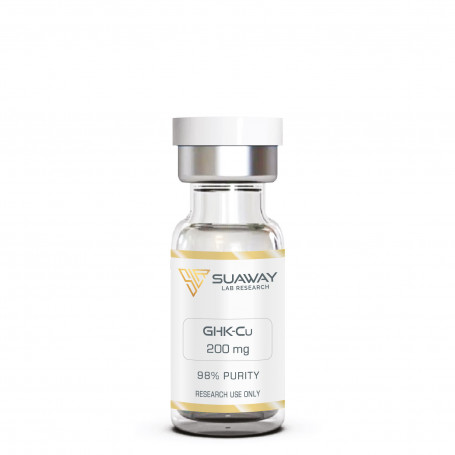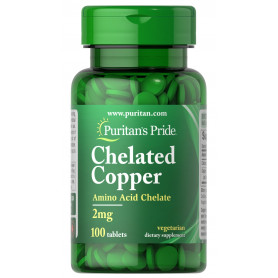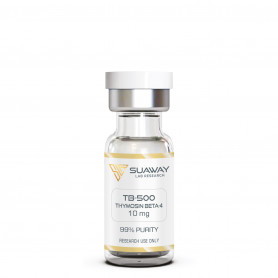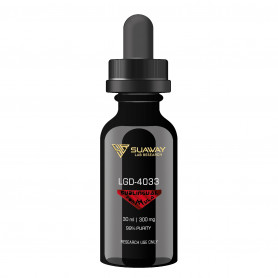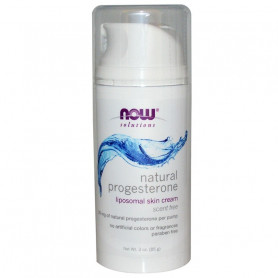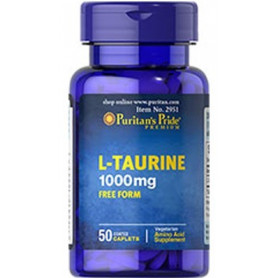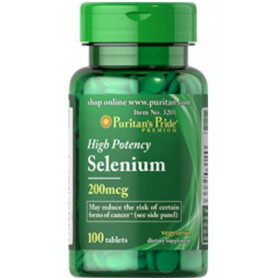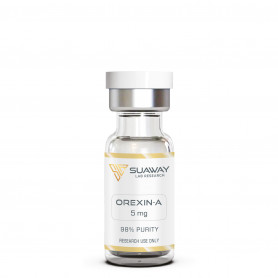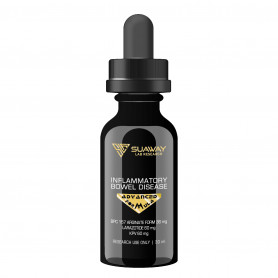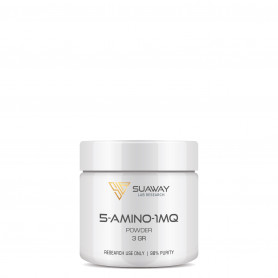Beschreibung
STRUCTURE
Sequence: (Gly-His-Lys)2Cu.xHAc
Molecular Formula: C14H24N6O4
Molecular Weight: 403.9 g/mol
CAS number: 49557-75-7
Peptide purity: Greater than 98%
Other details: No TFA Salt, No Mannitol
Storage: Lyophilized peptide must be stored at -20°C and peptide solution at 4°C.
GHK-Cu has a good oral and excellent subcutaneous bioavailability.
DESCRITPION
GHK-Cu, Copper Peptide, is a naturally occurring human tri-peptide. In plasma, the level of GHK-Cu is about 200 ng/ml at age 20, , but declines to 80 ng/mL by age 60. This decline in the GHK-level coincides with the noticeable decrease in regenerative capacity of an organism.
Scientific studies conducted in different research laboratories around the world have established that human tri-peptide GHK-Cu possesses a plethora of biological actions including activation of wound healing, attraction of immune cells, antioxidant and anti-inflammatory effects, stimulation of collagen and glycosaminoglycan synthesis in skin fibroblasts and promotion of blood vessels growth.
Recent studies indicate its important role in stem cell biology and anti-tumor defense. Since GHK-Cu plays an important role in skin biology, it is widely used in cosmetics as a reparative and anti-aging ingredient. The levels of GHK decrease as you age.
Recently, GHK-Cu has been gaining publicity as a prospective therapeutic agent for chronic obstructive pulmonary disease (COPD), skin inflammation, and metastatic colon cancer. It has been established that it is capable of up- and downregulating at least 4,000 genes in the human genome, essentially resetting DNA back to a healthier state. These studies shed new light on the skin remodeling activity of the GHK-Cu peptide.
Cosmetic use: GHK-Cu is widely used in anti-aging cosmetics. Several controlled facial studies confirmed anti-aging, firming and anti-wrinkle activity of copper peptide GHK-Cu. A number of placebo-controlled clinical studies found GHK-Cu to improve skin quality in women around the age of 50. A study of collagen production determined by studying skin biopsy samples using immunohistological techniques found that after applying creams to the thighs for one month, GHK-peptides had a significant effect on collagen production. Increases were found in 70% of the women treated with GHK-Cu, in contrast to 50% treated with the vitamin C cream, and 40% treated with retinoic acid. A GHK-Cu facial cream reduced visible signs of aging after 12 weeks of application to the facial skin of 71 women with mild to advanced signs of photoaging. The cream improved skin laxity, clarity, and appearance, reduced fine lines and the depth of wrinkles, and increased skin density and thickness. In another 12-week facial study of 67 women between 50 and 59 years with mild to advanced photodamage, a GHK-Cu was applied twice daily and improved skin laxity, clarity, firmness and appearance, reduced fine lines, coarse wrinkles and mottled pigmentation, and increased skin density, and thickness. The cream also strongly stimulated dermal keratinocyte proliferation as determined by the histological analysis of biopsies.
These placebo-controlled studies demonstrated that GHK-Cu skin creams had the following effects:
- Tightens loose skin and improves elasticity
- Improves skin density and firmness
- Reduces fine lines and deep wrinkles
- Improves skin clarity
- Reduces photodamage and mottled hyper-pigmentation
- Strongly increases keratinocyte proliferation.
Hair growth benefit
GHK-Cu and its analogues were found to strongly stimulate hair growth. The efficiency of synthetic analog of GHK-Cu was similar to that of 5% minoxidil.
Anti-cancer effects
In 2010, Hong Y. et al. (Department of Colorectal Surgery, Singapore General Hospital, Singapore) demonstrated that GHK-Cu is able to reverse the expression of certain genes involved in metastatic spreading of colon cancer. GHK-Cu was effective at a very low concentration. The fact that GHK was able to suppress 70% of genes involved in the development of an aggressive metastatic form of colon cancer indicates that GHK is capable of the regulation of various biochemical pathways on a gene level and it seems to be resetting the gene activity back to health, which leads to the improvement of tissue repair.
Stem cells
In 2009, a group of researchers from the Seoul National University (Republic of Korea) demonstrated that the copper-peptide GHK-Cu stimulated proliferation of keratinocytes and increased expression of integrins and p63 protein in the epidermal stem cells. Since p63 is considered to be an important marker of stem cell and anti-senescence protein, the authors concluded that GHK-copper is able to revive the proliferative potential of epidermal stem cells and increase their ability to repair tissue.
Nerve regeneration
In 2005, Ahmed et al. demonstrated that GHK promotes nerve regeneration. Axon regeneration was studied using collagen tubes with incorporated peptides. GHK increased the production of nerve growth factors, expression of integrins and increased the rate of regeneration of myelinated nerve fibers.
Human fibroblasts
Recent studies have revealed many new aspects of molecular actions of the copper-peptide GHK-Cu. Pollard at al established that GHK-Cu is able to restore function of human fibroblasts damaged by radiation treatment thus accelerate the healing and regenerative processes.
Skin repair
Wound healing and skin repair involves inflammation, cell proliferation and migration and dermal matrix remodeling. Excessive inflammation may delay healing and lead to scar formation. GHK-Cu reduced TNF-alpha induced secretion of proinflammatory cytokine IL-6, in normal human dermal fibroblasts. The authors propose that GHK and GHK-Cu can be used as a topical agent in treatment of inflammatory skin conditions instead of corticosteroids.
Dna repair
GHK was able to restore viability of irradiated fibroblasts. The researchers used cultured human fibroblasts obtained from cervical skin that was either intact or exposed to radioactive treatment (5000 rad). Fibroblasts are central cells in both wound healing and tissue renewal processes. They not only synthesize different components of dermal matrix, but also produce a number of growth factors that are involved in a multitude of cellular pathways regulating cell migration and proliferation, angiogenesis, epithelialization, and so forth. Radiation damages cell DNA, thus impairing their function. Since GHK was able to restore function of irradiated fibroblasts, it has to have effects on DNA repair.
It has long been accepted that the human copper-binding peptide GHK-Cu enhances healing of dermal wounds and stimulates skin renewal exhibiting a wide range of effects. Cellular pathways involved in dermal repair and skin regeneration form an intricate and finely orchestrated biochemical network, where various regulatory molecules are involved in a cross-talk. When such an interaction is disrupted, the healing is delayed and may result in excessive inflammation and scarring. It appears that GHK is able to restore healthy functioning of essential cellular pathways in dermal repair through resetting the gene pattern to a healthier state. The molecule is very safe and no issues have ever arisen during its use as a skin cosmetic or in human wound healing studies.
REFERENCES
L. Pickart et al., "GHK-Cu may Prevent Oxidative Stress in Skin by Regulating Copper and Modifying Expression of Numerous Antioxidant Genes" [MDPI]
M. Kukowska et al., "In vitro studies of antimicrobial activity of Gly-His-Lys conjugates as potential and promising candidates for therapeutics in skin and tissue infections" [PubMed]
L. Pickart et al., "The Human Tripeptide GHK-Cu in Prevention of Oxidative Stress and Degenerative Conditions of Aging: Implications for Cognitive Health" [PubMed]
L. Pickart et al., "Regenerative and Protective Actions of the GHK-Cu Peptide in the Light of the New Gene Data" [PubMed]
A. Gruchlik et al., "Effect of GLY-HIS-LYS and its copper complex on TGF-β secretion in normal human dermal fibroblasts" [PubMed]
L. Pickart et al., "GHK Peptide as a Natural Modulator of Multiple Cellular Pathways in Skin Regeneration" [BioMed Research International]
S.O. Canapp Jr et al., "The effect of topical tripeptide-copper complex on healing of ischemic open wounds" [PubMed]
X. Wang et al., "GHK-Cu-liposomes accelerate scald wound healing in mice by promoting cell proliferation and angiogenesis" [PubMed]
G.D. Mulder et al., "Enhanced healing of ulcers in patients with diabetes by topical treatment with glycyl-l-histidyl-l-lysine copper" [PubMed]
L. Pickart et al., "The Effect of the Human Peptide GHK on Gene Expression Relevant to Nervous System Function and Cognitive Decline" [PubMed]
L. Pickart et al., "GHK and DNA: Resetting the Human Genome to Health" [BioMed Research International]
DISCLAIMER
This product is intendend for lab research and development use only. These studies are performed outside of the body. This product is not medicines or drugs and has not been approved by the FDA or EMA to prevent, treat or cure any medical condition, ailment or disease. Bodily introduction of any kind into humans or animals is strictly forbidden by law. This product should only be handled by licensed, qualified professionals.
All product information provided on this website is for informational and educational purposes only.

